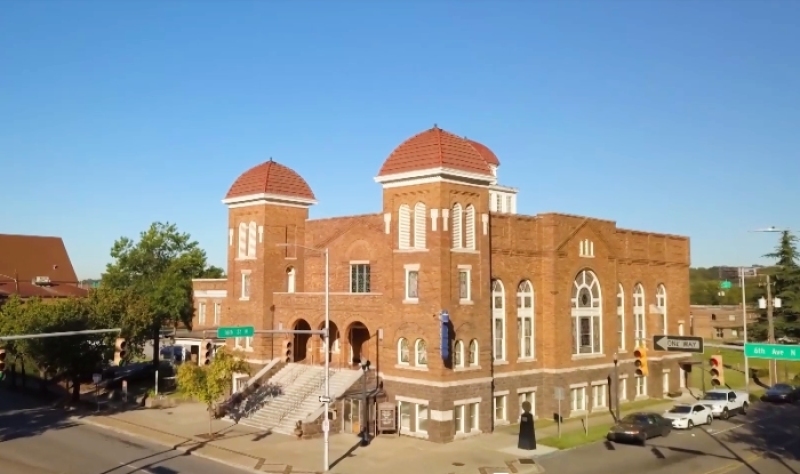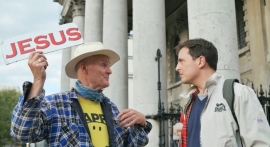
An American church in Alabama with deep ties to the Civil Rights Movement has been recognized with a prestigious award for its dedication to historic preservation.
The Sixteenth Street Baptist Church in Birmingham is well-known as the site of a tragic 1963 Ku Klux Klan bombing that killed four young black girls. On Monday, the church received the Trustees’ Emeritus Award for Historic Site Stewardship from The National Trust for Historic Preservation.
The award acknowledges Sixteenth Street Baptist Church's successful efforts to preserve and renovate its historically significant property.
The National Trust praised the church, noting, “Sixteenth Street Baptist Church has successfully restored its buildings and become a shining example of preservation, cultural revitalization, and social activism.”
Today, the church not only continues to serve its community but also welcomes more than 100,000 tourists annually. Visitors can explore the redesigned educational spaces and multi-media museum experiences that highlight not just the history, but also the church's design by African American architect W. A. Rayfield.
The Rev. Arthur Price Jr., pastor of the Sixteenth Street Baptist Church, expressed his gratitude for the recognition, stating to Bham Now, “We are deeply honored to accept this recognition on behalf of the Birmingham community. Our sanctuary is a sacred space in every sense, and we are proud to continue on its legacy and history.”
The Alabama African American Civil Rights Heritage Sites Consortium also celebrated the church’s honor, with board member Ted Debro, who chairs the board of trustees for the church, accepting the stewardship award on behalf of the congregation.
The church, historically pivotal in coordinating civil rights work, became a tragic symbol of racial violence in 1963 when the Ku Klux Klan planted a bomb at its premises. The attack killed four girls—Denise McNair, Carole Robertson, Cynthia Wesley, and Addie Mae Collins—and injured others, including Addie’s sister, Sarah Collins Rudolph.
The church's website recounts the bombing as “a shocking, terrifying day in the history of Birmingham and a day that forced white leaders to further come to grips with the city’s bitter racist reputation.” The tragedy drew international attention, generating over $300,000 in contributions for the church’s restoration.
This tragic event amplified the civil rights struggle and became a rallying point for activists across the United States. The church reopened for worship on June 7, 1964.
To mark the 60th anniversary of the bombing, Birmingham and the church held a series of commemorative events last September, featuring a speech by U.S. Supreme Court Justice Ketanji Brown Jackson, the first black woman appointed to the nation’s highest court.

















